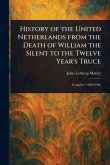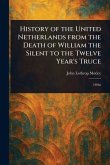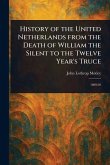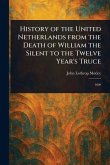Delve into the tumultuous history of the Dutch Revolt with John Lothrop Motley's "History of the United Netherlands, 1607, Part 2." This meticulously researched historical account explores a pivotal year within the larger context of the Eighty Years' War, a defining struggle for independence from the Spanish Empire. Gain insight into the complex political landscape of the 17th century Netherlands, a period of intense conflict and transformation. Motley's work provides a detailed exploration of the military and naval engagements that shaped the destiny of the region. This volume offers a valuable perspective on the Netherlands' fight for freedom, solidifying its place as a key moment in European history and the Renaissance. A must-read for anyone interested in political history and the enduring legacy of this era. This work has been selected by scholars as being culturally important, and is part of the knowledge base of civilization as we know it. This work is in the public domain in the United States of America, and possibly other nations. Within the United States, you may freely copy and distribute this work, as no entity (individual or corporate) has a copyright on the body of the work. Scholars believe, and we concur, that this work is important enough to be preserved, reproduced, and made generally available to the public. We appreciate your support of the preservation process, and thank you for being an important part of keeping this knowledge alive and relevant.
Bitte wählen Sie Ihr Anliegen aus.
Rechnungen
Retourenschein anfordern
Bestellstatus
Storno









